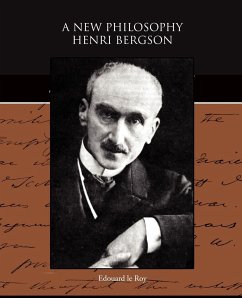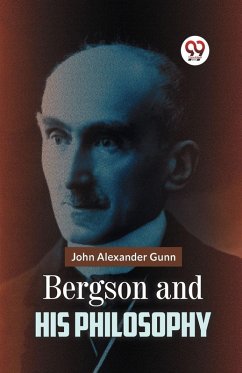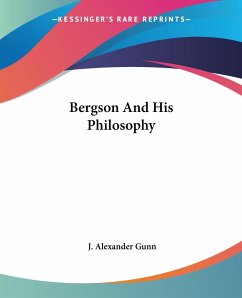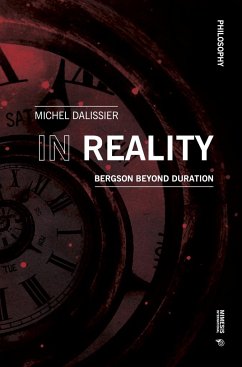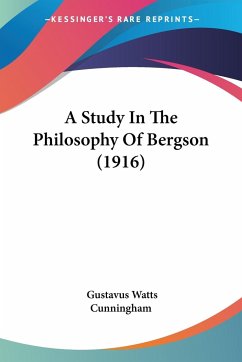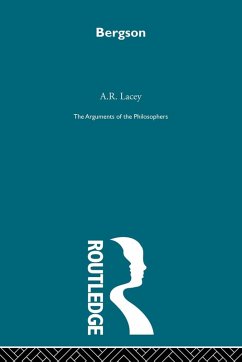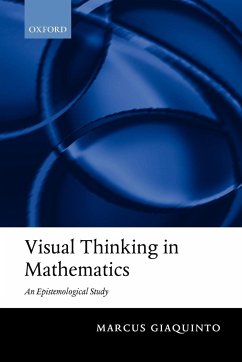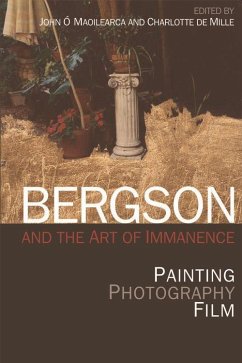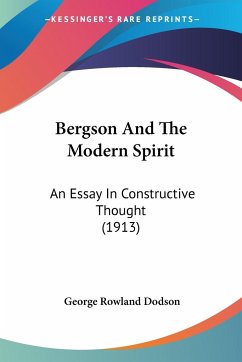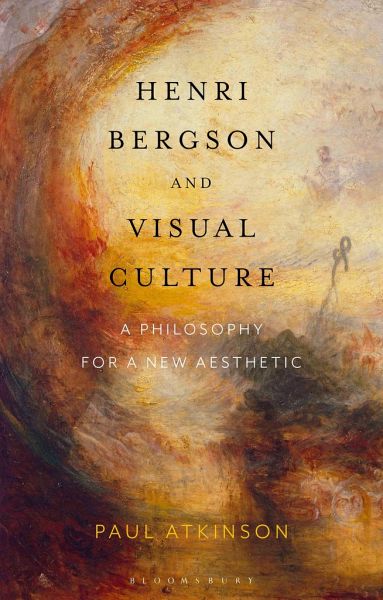
Henri Bergson and Visual Culture
A Philosophy for a New Aesthetic
Versandkostenfrei!
Versandfertig in über 4 Wochen
36,99 €
inkl. MwSt.
Weitere Ausgaben:

PAYBACK Punkte
18 °P sammeln!
What does it mean to see time in the visual arts and how does art reveal the nature of time? Paul Atkinson investigates these questions through the work of the French philosopher Henri Bergson, whose theory of time as duration made him one of the most prominent thinkers of the fin de siècle. Although Bergson never enunciated an aesthetic theory and did not explicitly write on the visual arts, his philosophy gestures towards a play of sensual differences that is central to aesthetics. This book rethinks Bergson's philosophy in terms of aesthetics and provides a fascinating and original account...
What does it mean to see time in the visual arts and how does art reveal the nature of time? Paul Atkinson investigates these questions through the work of the French philosopher Henri Bergson, whose theory of time as duration made him one of the most prominent thinkers of the fin de siècle. Although Bergson never enunciated an aesthetic theory and did not explicitly write on the visual arts, his philosophy gestures towards a play of sensual differences that is central to aesthetics. This book rethinks Bergson's philosophy in terms of aesthetics and provides a fascinating and original account of how Bergsonian ideas aid in understanding time and dynamism in the visual arts. From an examination of Bergson's influence on the visual arts to a reconsideration of the relationship between aesthetics and metaphysics, Henri Bergson and Visual Culture explores what it means to reconceptualise the visual arts in terms of duration. Atkinson revisits four key themes in Bergson's work - duration; time and the continuous gesture; the ramification of life and durational difference - and reveals Bergsonian aesthetics of duration through the application of these themes to a number of 19th and 20th-century artworks. This book introduces readers and art lovers to the work of Bergson and contributes to Bergsonian scholarship, as well as presenting a new of understanding the relationship between art and time.





